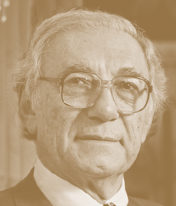Acceptance speech
Your Majesty, Your Royal Highnesses, Excellencies, Friends, Colleagues and Family, Ladies and Gentlemen,
It is indeed a great honor and a profound source of satisfaction for me to stand up here to express my gratitude and appreciation for the bestowal of this high distinction on my person. The honor becomes even greater, first, for having come from such a high European cultural institution of the Netherlands that derives its inspiration and name from the spirit, thought and achievements of the most celebrated Dutch Renaissance humanist, scholar, satirist, critic and cosmopolitan, Desiderius Erasmus; and second, for being shared with such eminent colleagues, influential public intellectuals and brave critics as Fatima Mernissi and Abdulkarim Soroush.
Invoking the name and example of Erasmus is particularly significant and fitting in this context. For, I do think of my own work as a part of and an extension and addition to that great tradition of liberal reform, latitudinarian religious interpretation, critical self-interrogation and self-reflection in Arab life, culture and thought which experts and historians, both East and West, call an awakening, a renaissance, a religious reformation, the liberal experiment, the liberal age of Arab thought and that they date back to the beginning of the 19th century. This tradition compressed in itself all at once, a Muslim theologico-legal reformation, a literary-intellectual renaissance, a rational scientific enlightenment of sorts and a politico-ideological aggiornamento as well.
And just as the Enlightenment – that culmination of the critical spirit launched and nourished by Erasmus himself – has had to sustain harsh assaults on its tenets, methods and values in Europe itself, similarly the great tradition of the Arab awakening has had, for some time now, to defend itself against even harsher attacks, denigrations and
dismissals coming from the resurgent forces of religious absolutism, dogmatism, obscurantism, scripturalism and literalism.
I certainly regard my own work as part of and a contribution to that defense. For it is, the evolving dynamics of this tradition that succeeded in putting so forcefully on the agenda of modern and contemporary Arab history, culture, thought and action such vital issues as modernization, reform, independence, progress, liberation, freedom, citizenship, democracy, toleration, criticism and human rights.
I see the recognition extended to my work and to my person by the Erasmus Prize as additional support of and a reinforcement of this defense. As for the money attendant to this recognition, I hope to succeed in using it to give myself a year off to finish a lot of work in the same domain now lying around unfinished, and above all to try to transcend what has been accomplished so far.
Finally, I would like to end by reaffirming my gratitude and pride for having received this prestigious European and Dutch prize.
